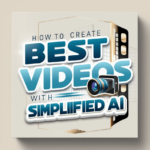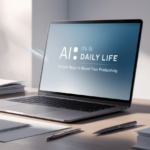Overview
As of 2022, the global AI healthcare market is at $16.3 billion and is expected to reach $173 billion by 2029 with a compound annual growth rate of 40%. AI improves on diagnostic accuracy, increases the smoothness and efficiency of operations, and reduces costs since it allows them to quickly analyze volumes of data. Companies using AI solutions will be able to provide their patients with personalized care, predictive analytics, which in turn improve treatment plans. High-priority areas comprise enhanced diagnostic accuracy, predictive analytics, and clinical decision support systems, among others, and major companies are making effective use of AI to solve key health care problems.
The Future of Healthcare: AI-Powered Innovations
Valued at $16.3 billion in 2022, this market is expected to reach $173 billion by 2029. In diagnostics, patient management, medical imaging analysis, predictive analytics, and personalized medicine, AI technologies are used to ensure improved treatment outcomes through the identification of patterns that might have gone undetected by human clinicians.
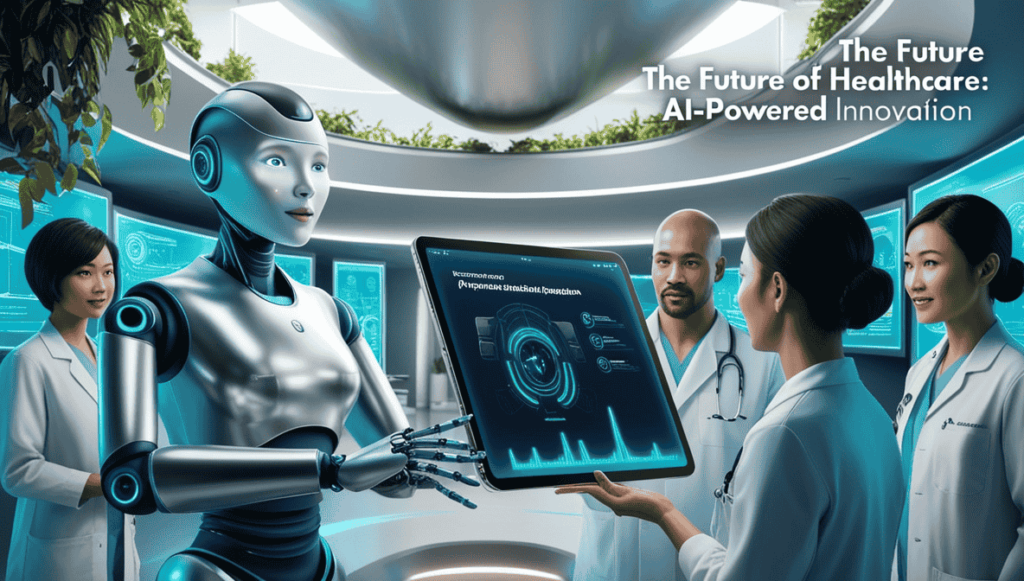
AI further supports personalized medicine by individualizing treatments based on genetic and other lifestyle factors. In conclusion, simplification of the operations and improvement in the diagnostics accuracy have been the main reasons AI qualifies as an integral part of health care innovation.
When and how should health care systems make use of AI?
Health care systems must utilize the AI technologies to enhance the outcome for the patient and operational effectiveness. The applications of AI in health care mainly include diagnostics, predictive analytics, as well as personalized medicine for better decision-making processes.
High-accuracy algorithms of AI can detect human product-related patterns on medical images with 25% reduction in false positives. Predictive analytics can help decide which patients would likely be afflicted with a particular disease, and interventions can be carried out in due course.
The global AI healthcare market was estimated to stand at $16.3 billion in the year 2022, but is projected to rise to $173 billion by the year 2029. Best practices in the application of AI in health care will improve care delivery and satisfaction in the course of care.
What is the best practice for AI in healthcare?
Best practices should be implemented by the health care systems to ensure effective applications of AI. It would determine specific issues with proper goals for integrating AI, which in return would provide a 30 percent better outcome. Quality data security is also very essential for proper fulfillment of the AI solution. Comprehensive training programs would give the staff greater confidence in using AI tools.
Continuous monitoring of AI systems, regular audits, and collaboration between healthcare professionals and AI experts would certainly lead to innovative solutions tailored for patient needs. The best practices will enable healthcare systems to exploit AI towards better patient care and operational efficiency.
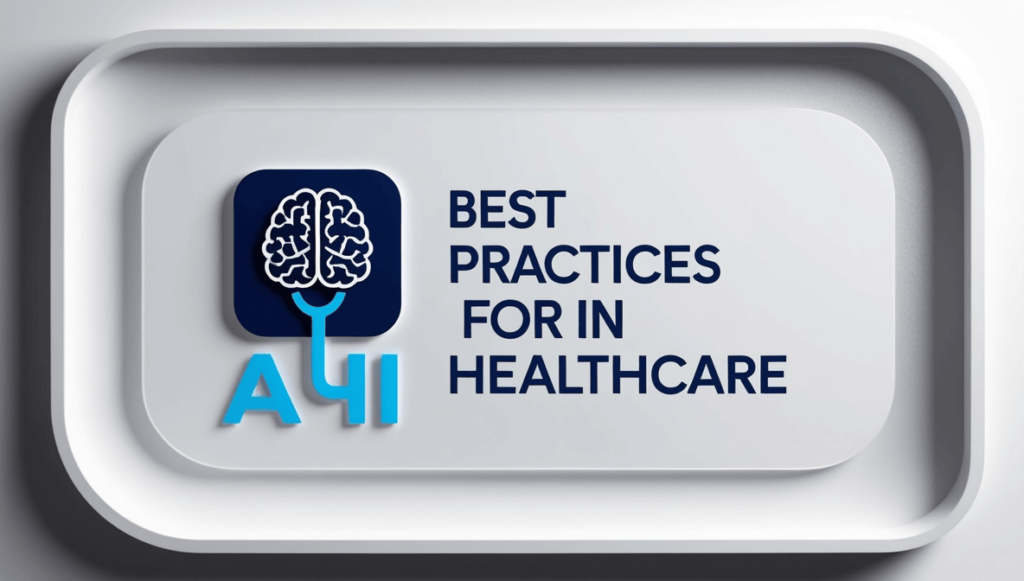
Top 10 Amazing AI Healthcare Solutions
1. IBM Watson Health
IBM Watson Health uses AI to assess data about the patient in making better judgments over the treatment. Its concentration is on applications that are cancer treatment-related and patient engagement. Watson for Oncology is used in suggesting specific, personalized treatments of cancer to oncologists after the analysis of comprehensive data.
2. Google DeepMind
Google DeepMind developed AI to make medical images more realistic so that they diagnose patients better. The company’s algorithms help in the diagnosis of diseases and numerous activities from enormous medical records within a small time. A study showed that AI, developed by DeepMind, decreased false positives in mammography by 25 percent which contributed to the accuracy of diagnosis.
3. Medtronic’s AI-Powered Diabetes Management
Medtronic’s artificial intelligence-based diabetes management system coupled with predictive analytics will better optimize the plan of treatment for patients. It personalizes care by analyzing real-time glucose data and adjusting insulin based on the individual’s needs.
4. Microsoft Health Bot
Microsoft Health Bot is another tool for patient engagement and symptom checking. The AI-driven tool helps patients check their symptoms and have proper healthcare advice and action at the right time; access to medical information and its support improves.
5. AI-Powered Patient Platform of Stanford Healthcare
Stanford Health Care provides the AI-powered patient platform through which personalized medicine and patient engagement are made possible by using data about patients. This kind of patient platform will use patient data in making specific treatment plans and also gives avenues towards better communication between health care providers and their patients.
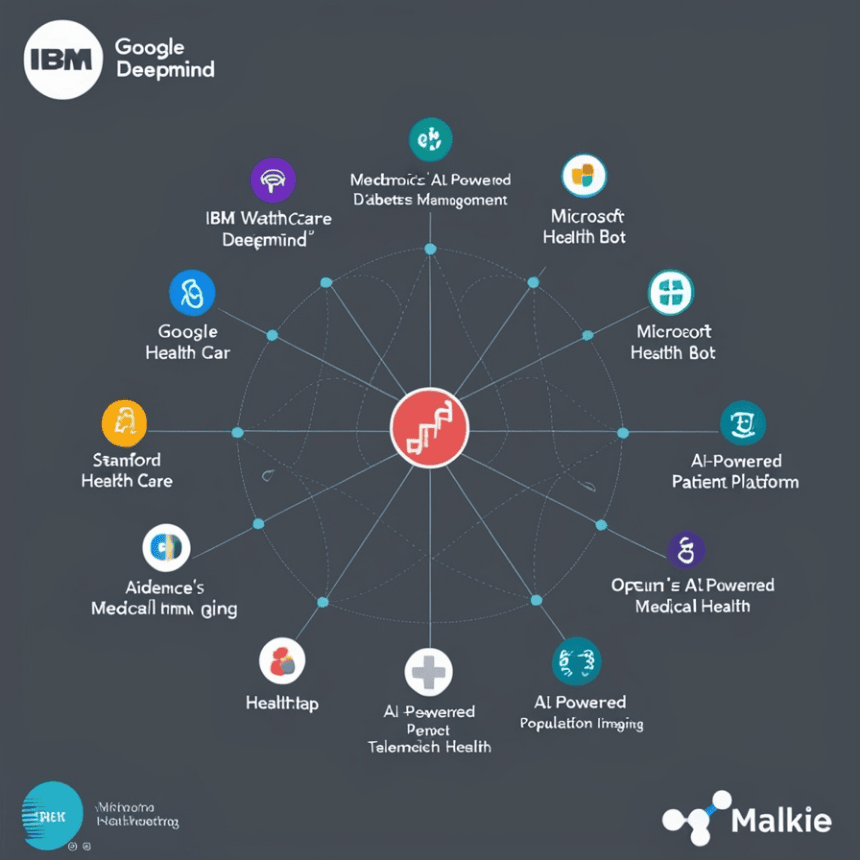
6. AI-Powered Medical Imaging by Aidence
Aidence is an organization dealing with AI-powered medical imaging solutions that improve on disease detection and image analysis. Aidence can help radiologists who have the ability to identify the likelihood of lung cancer by automating the analysis of CT scans.
7. HealthTap AI-Powered Telemedicine
HealthTap developed an AI-based telemedicine application offering virtual consultations and personalized care, connecting patients to healthcare providers for direct remote diagnosis and treatment recommendations according to a patient’s health profile.
8. Optum’s AI-Powered Population Health
Optum utilizes AI with predictive analytics to power population health management. It effectively identifies high-risk patients for the implementation of targeted interventions to improve health outcomes within different populations.
9. GE Healthcare’s AI-Powered Imaging
Advanced by GE Healthcare’s AI, imaging solutions upgrade medical imaging for the early detection of disease. Their Edison platform auto-analyzes MRI and CT scans to enable radiologists to diagnose patients more rapidly and accurately.
10. AI-Based Patient Monitoring at Philips Healthcare
It is using AI on patient monitoring systems for Philips Healthcare to make its predictive analytics and results of patient outcomes much stronger. It constantly looks into the vital signs and alerts healthcare providers to the potential health issues before they even worsen.
Are AI-powered chatbots truly effective in the health sector?
AI-powered chatbots revolutionize the health sector by improving patient engagement and operational efficiency. They are even superior to medical students when it comes to certain types of assessments and even help lighten the workload on the healthcare staff by reducing administrative work. 30% improvement in patient satisfaction was reported in the year 2023 due to interactions through the chatbot. This chatbot is available 24/7 and responds immediately to patients’ queries while offering timely medical advice.
Moreover, they assist in initial screenings of symptoms and filtering of serious cases. If the chatbot is interfaced with the electronic health record, it can become more consulted on vital information pertaining to the patient, thus optimizing continuity of care. In essence, AI-enabled chatbots assist clinicians in providing better healthcare with correct information and assistance.
What are the risks and Drawbacks of AI in healthcare?
The challenges and risks against the use of AI in healthcare are as follows: chance of a wrong diagnosis by the AI, compromise of a patient’s data, and the influence of the existing biases at the time of the AI training. Wrong predictions by AI will have disastrous effects on patient safety, and privacy of data are vulnerable to hacking.
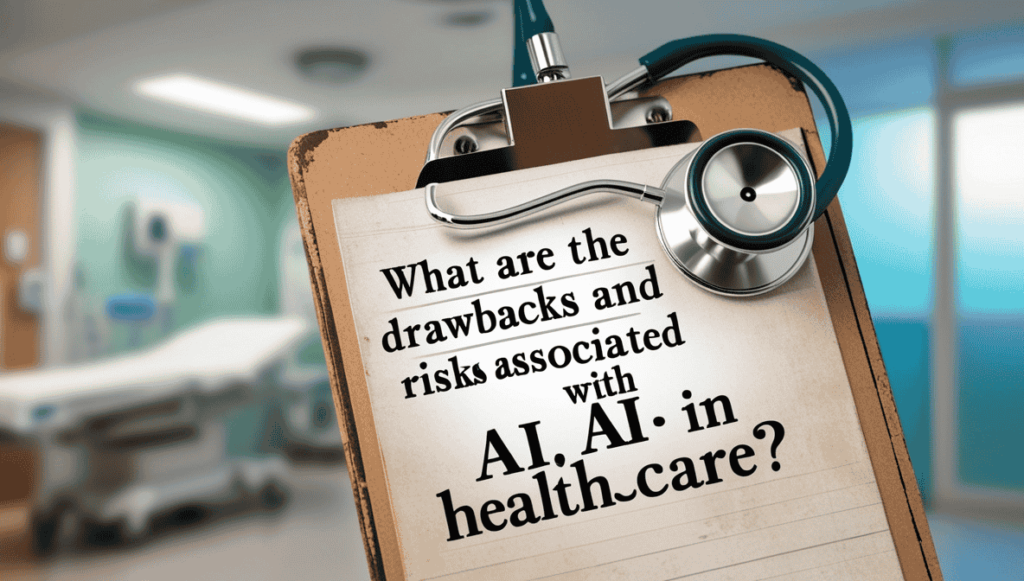
In the year 2023, there were over 50 million compromised health care-related data cases that resulted from security breach. Biases in the algorithms create inequity in healthcare and results. Implementing the AI solutions cost a fortune that raises the bar too high for smaller health care facilities to have. However, proper management and careful consideration are required to achieve patient safety and equity in care provision.
Conclusion
The global market for artificial intelligence in healthcare was $20.9 billion in the year 2024. The threshold will be reached to $148.4 billion by the end of 2029. AI is being implemented to enhance diagnostic accuracy and increase operations. Applications such as medical imaging and cancer treatment are leading companies include IBM Watson Health and Google DeepMind.
AI will improve patient care through applied personalized medicine and predictive analytics by cutting cost and improving efficiency. The future of healthcare promises great promise as healthcare organizations begin deploying these advanced technologies because AI is driving major advancements in patient care and operational effectiveness.


